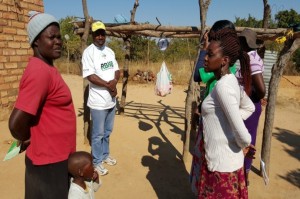Rural Basic Needs Basket
PRFT undertakes the rural BNB survey tool to provide evidenced based information as an entry point to inform policies towards poverty reduction and rural development. Although urban poverty has turned to be an emerging reality in Zimbabwe in recent years, poverty remains more widespread in the rural areas as the rural and urban household poverty statistics are estimated to be at 76 percent and 38 percent, respectively ( ZIMSTATS, 2012). Lack of Food insecurity and lack of sustained income opportunities in the face of climate change remain key livelihood challenges being faced by the rural poor in Zimbabwe. Poor access to basic services such as food, health, transport, water and sanitation greatly affects the lives of women and children in rural areas. With over 70% of the Zimbabwean population living in rural areas and heavily dependent on agricultural sector, it remains very important to invest in evidence based approach to improve rural livelihoods and access social services by all layers of the society.
Through the participatory Rural Basic Needs Survey (RBNB), PRFT collects local specific information and gender disaggregated data on rural household food security for a family of five and accessibility to other social services and infrastructure which include as health, education, transport and energy. PRFT makes use of the BNB reports and policy briefs to widen the understanding of urban and rural poverty dimensions and alternative policies that can be implemented to secure improved rural livelihoods. The tool is also used to foster an engaged and informed citizen in community service delivery planning.
In this project, PRFT works extensively with rural communities, women, youth, rural local leadership structures, urban and rural District councils, local NGOs, community based organizations, Agriculture extension officers government ministries, University of Zimbabwe, development consultants and community based organizations. These stakeholders are engaged in data collection, validation and analysis. Through this participatory project, PRFT aims to provide information on access to food, nutrition, household incomes, access to health, transport services and other basic services to facilitate policy planning and evaluation at all levels for improved delivery of essential basic goods and services to all citizens.




